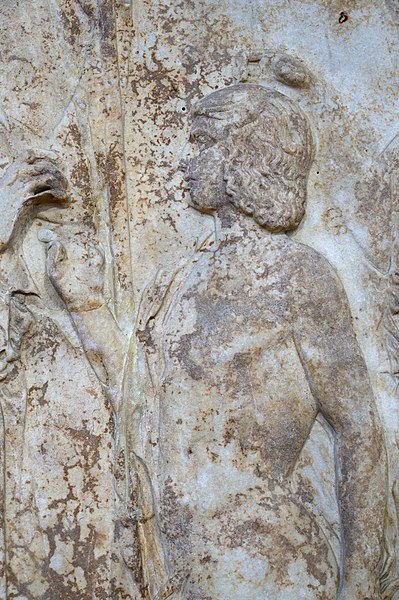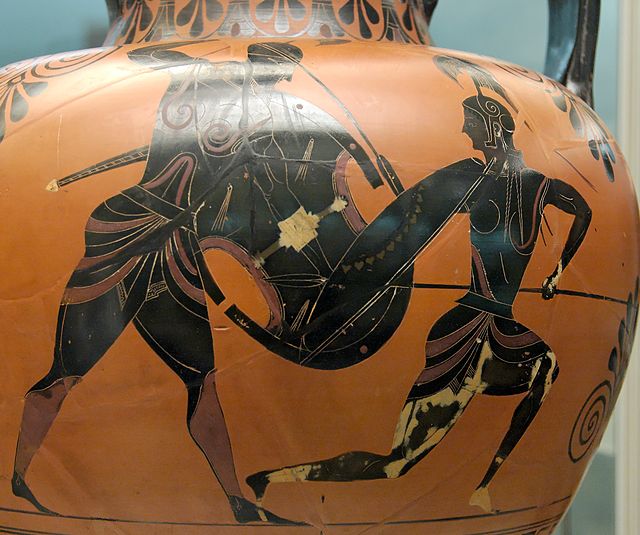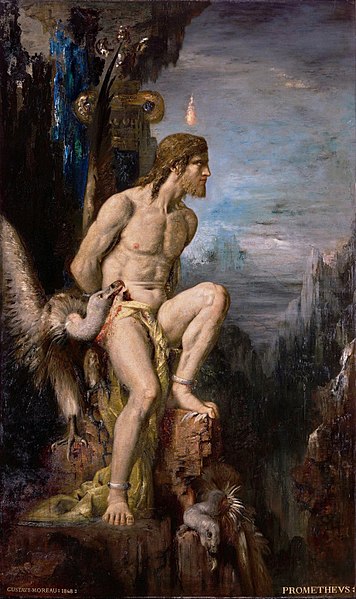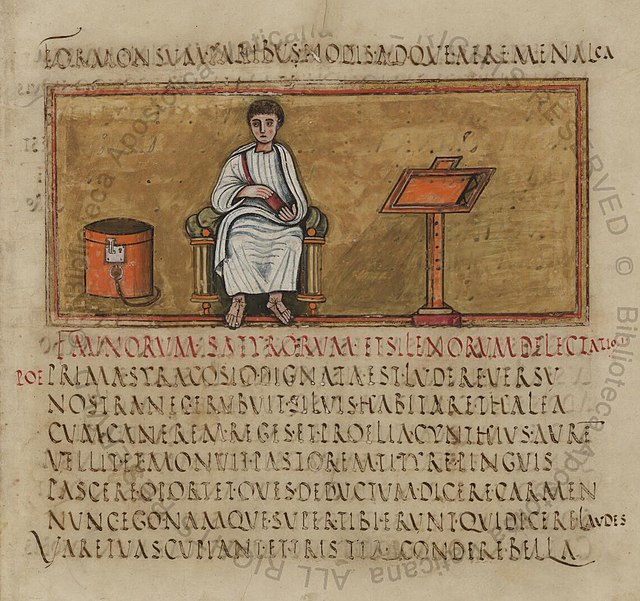Triptolemus, also known as Buzyges, was a hero in Greek mythology, central to the Eleusinian Mysteries. He was either a mortal prince and the eldest son of King Celeus of Eleusis, or according to Pseudo-Apollodorus' Bibliotheca (I.V.2), either the divine son of Gaia and Oceanus, or the grandson of Hermes through Eleusis. He was the ancestor to a royal priestly caste of the Eleusinian Mysteries, who claimed to be Buzygae (Βουζύγαι), that taught agriculture and performed secret rites and rituals, of which Pericles was its most famous descendant.
Detail of Triptolemus standing between Demeter and Persephone, Great Eleusinian Relief in the National Archaeological Museum of Athens.
Triptolemus on a 2nd-century Roman sarcophagus (Louvre Museum).
Greek mythology is the body of myths originally told by the ancient Greeks, and a genre of ancient Greek folklore, today absorbed alongside Roman mythology into the broader designation of classical mythology. These stories concern the ancient Greek religion's view of the origin and nature of the world; the lives and activities of deities, heroes, and mythological creatures; and the origins and significance of the ancient Greeks' cult and ritual practices. Modern scholars study the myths to shed light on the religious and political institutions of ancient Greece, and to better understand the nature of myth-making itself.
Achilles and Penthesileia by Exekias, c. 540 BC, British Museum, London
Prometheus (1868 by Gustave Moreau). The myth of Prometheus first was attested by Hesiod and then constituted the basis for a tragic trilogy of plays, possibly by Aeschylus, consisting of Prometheus Bound, Prometheus Unbound, and Prometheus Pyrphoros.
The Roman poet Virgil, here depicted in the fifth-century manuscript, the Vergilius Romanus, preserved details of Greek mythology in many of his writings.
Phaedra with an attendant, probably her nurse, a fresco from Pompeii, c. 60 – c. 20 BC






